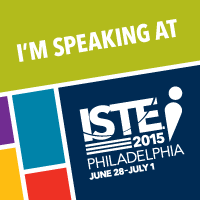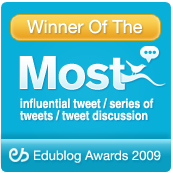 If a doctor, who is faced with a patient exhibiting multiple symptoms of an unknown disease, were to address each of the symptoms rather than addressing the disease itself, he/she might find the outcome for that patient to be disastrous in the long run. The patient might have had the symptoms lessened, but the disease would eventually win out with a poor outcome for the patient.
If a doctor, who is faced with a patient exhibiting multiple symptoms of an unknown disease, were to address each of the symptoms rather than addressing the disease itself, he/she might find the outcome for that patient to be disastrous in the long run. The patient might have had the symptoms lessened, but the disease would eventually win out with a poor outcome for the patient.
Our education system is extremely complicated. There are many parts to that system, many of which have undergone change based on cultural and scientific influences. Many problems of today’s education system did not exist in past generations or even the most recent past decade. With so many facets, many in a state of flux, it is impossible to point to one solution that will fix all that is wrong with the education system and also expect it to work forever. The best strategy might be to identify those problems that can have the greatest impact on change. Of course many educators might find it difficult to reach agreement as to which problems should be first addressed, depending on their own biases and experiences with teaching and learning. The opinions of other stakeholders in the system further complicate this including: administrators, students, parents, and taxpayers. The question we first need to address, if change can happen in a positive way to improve education in our country, in my opinion should be about educating educators.
Teachers in the system come from varied backgrounds with varied levels of education. They are from varied races and have varied life experiences as well as varied professional experiences. With these vast differences in those who are responsible for educating our kids, can we say that all of these educators are using the best practices, and methodologies to get the most out of those students they are responsible for?
Using the term of “standardization” is a slippery slope. Too often, when we talk about standardization, we also imply a rigidity that prevents us from revisiting any component of that standardization to test its relevance. This requires work to re-evaluate and change and re-educate large numbers of educators if any component of the system loses its relevance. Some changes are obvious when we consider technology. Consider the demise of: typewriters, mimeograph machines, record players, VCRs, cameras, projectors, telephones, and filmstrips. All of these, as well as many others, were recognized as ineffective tools for education and were replaced by more efficient and effective tech tools. Upgraded and improved tools are also continually replacing these new tools.
Now let’s consider our educators with their varied experiences spread out over their generations of experience. Do their current practices include: problem based learning, project based learning, student voice and choice, student centered learning, voluntary homework, formative assessment, flipped learning, design based learning, the use of rubrics, authentic learning, school culture, new education technology, and many more methodologies?
Do we have a responsibility to make sure our educators are as relevant as the technology they are required to use? Do we have a responsibility to make sure any school we walk into in our country has educators who are versed in the most recent and effective methodology in their field of education?
A common complaint among most educators is their dissatisfaction with the professional development provided to them. The requirements for PD differ from state to state and town to town. Some schools support PD within the culture of the school. Other schools rarely address PD beyond what the state may require.
“A Level Playing Field” is a really overused expression, but it seems to fit in what is needed to improve deficiencies in our education system. If we truly want to improve the education of our students, we need to first improve and support the education of their educators. The practices of PD over the last decades have failed to do so. The speed at which change takes place is faster than ever before in history. We need to account for change and adjust accordingly to maintain relevance in our community of educators. If we want “The Best Bang for the Buck” PD is the key. If we fail to prioritize professional development, we are not prioritizing education. All that political rhetoric about improving education is a hollow promise of something that politicians have little understanding, but that is nothing new for politicians. They too should consider some improved form of professional development for their own profession.
Prioritizing PD will be costly to implement and maintain but it is an investment in our system. It is not just throwing money at a problem without a plan. We need not standardize curriculum if continually educate educators in best practices. Yes there will be fads in educational approaches that we will need to root out, but will have a better ability to judge such things as more educators are engaged in the leading ideas of their profession.
For the best and most effective changes in our education system we need a bottom up movement to improve Professional Development. We need to teach educators as adults who learn as adults learn. We need to respect them for who they are and what life experiences they bring to the table. We need to teach them things today that they can use in class tomorrow. We need to recognize their goals and help achieve them. We need to provide practical and relevant solutions to help their teaching as well as their learning. We need to provide coaches on the school staff to monitor guide and reflect along with our educators to reinforce and support their efforts.
Without a new and supportive approach to professional development for our educators, we will continue to struggle. After two centuries of a scattered approach to PD without consideration to adult learning, we are not far from where we were back in the 18th century with the exception maybe of improved bells and whistles. Educating educators in better ways and supporting that learning is the best and most effective way to improve the education of our children. Rather than standardize curriculum and testing, let us consider standardizing a thoughtful, supportive, national approach to professional development for educators. If we are to better educate our kids, we must first better educate their educators.











